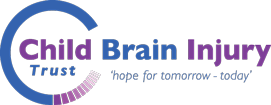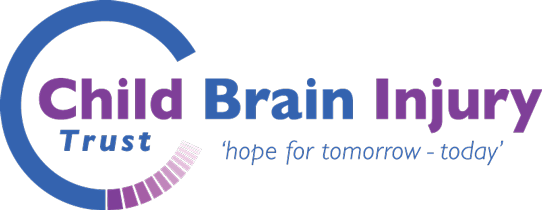Following on from the valuable resources, tips and support shared by the Child Bran Injury Trust, here at the Child Brain Injury Rehabilitation Service (CBIRS) we wanted to share with you our knowledge and experience around supporting children and young people when they’re discharged from hospital to their home. Not only that; we want to offer you an insight into the common questions and concerns we hear when families find themselves in this situation for the first time.
Answering your questions around returning home from hospital with your child following an acquired brain injury is Nicola Steel, Registered Sick Children’s Nurse and CBIRS case manager. Nicola draws on over 20 years’ of experience in primary and secondary care to provide you with relatable advice from the questions to ask hospital staff prior to discharge, to what to expect in terms of continued support at home.

We began by asking Nicola how in her role as Specialist Practitioner in Community Children’s Nursing she supports children and their families when leaving hospital.
I play a key role in the Multidisciplinary Team (MDT) to help co-ordinate the discharge plan for the child. I will organise discharge planning meetings and ensure everyone involved in the child’s care whilst in hospital are talking to each other, whilst also keeping the parent/guardian informed. An important step before returning home is ensuring that the clinicians have made referrals to community services so that support will continue for the family following discharge.
After being able to lean on others in hospital it’s important that I make families aware that it can be very different at home. I’ve found that after working with many different families I’ve learnt to read situations, people’s feelings and almost develop a ‘sixth sense’. Whilst this is helpful I’m always keen to find out what expectations families have with regards to how they see the discharge process going. I often find it beneficial to introduce those I’m working with to other families who have already been through the discharge process as they’re able to find common ground and have relatable conversations.
I recall seeing a great sense of relief from one family I worked with after speaking with another about a similar experience with a mutual understanding. I feel like facilitating this is a key part of my role and something I encourage when leaving hospital.
What are the key concerns parent/carers have?
I find there are a range of concerns that parents/guardians have. There is commonly a sense of anxiety and questioning whether they will be able to cope when returning home with their child. Sometimes there will be care package organised however it can be really hard to get enough support in place immediately, it can take time to get up to speed which creates challenges.
Fear, without a doubt can be experienced. As a parent/guardian, you’re coming to terms with the fact you are bringing home from hospital a different child and having to learn new ways to care for them. You may find that friends shy away as they don’t understand the situation or are worried about saying the wrong thing. All can contribute to a feeling of fear about the experience at home.
However there are also families I work with that can’t wait to return home. All of these feelings are valid, it often depends on the support networks that are around them, some are fine and some have very little support to lean on.
What concerns do children have and how do they react to the thought of going home?
A lot of children are resilient which always amazes me, they get on with it. However some children have not known a life outside of hospital so may be settled but not at home, different noises or smells may affect them differently and parents really worry about this but it’s normal.
I find there is anxiety in older children who are more aware but that is to be expected; sometimes they can feed off their parents own anxiety. Whilst is depends on the area you live in, family support workers and play specialists in the hospitals can alleviate some of this anxiety and advise on support available to the family and child in the community.
To help relieve the concerns children may have, a phased discharge may be put in place to help build them up to leaving hospital. Other parties can also be involved to help the process including their school, a Special Educational Needs Coordinator who would come in to see the child and friends who are encouraged to stay in touch despite feeling they don’t have an understanding of what the child has experienced.
What is the process for discharging a child with an acquired brain injury back home?
A good discharge plan should begin from admission; the end goal is to enable the child to return home. However a lot can depend on the complexities of the child and any referrals that need to be made for continuing support at home including healthcare or therapies. It’s important that all professionals that are involved with the child in hospital are included in this process; both Consultants and the MDT will discuss and decide on a potential discharge date.
A good discharge plan should begin from admission; the end goal is to enable the child to return home.
Hospitals refer a lot to ‘medical stability’ which comes into play as there are a certain amount of days they will need to discharge a child after they are deemed medically stable. When they are classified as ‘medically stable’ and not needing any medical intervention, the discharge plan is actioned; however it is important that for this to be successful, parents/guardians have the knowledge and training to look after the child’s needs at home as required, alongside sufficient community services that are in place.
What advice do you give parents and children?
My advice would be that even though you may feel like your child has changed, you know them, they are your child and you are their voice. I find that parents do learn this very quickly but I can assure them that it’s fine to feel very mixed emotions, upset, happy, anxious; almost like there is a fight inside them.
What questions should parents/carers be asking hospital staff prior to discharge?
As people we are resilient but it’s often the fear of the unknown that is the biggest challenge to overcome. This is why I would encourage people to draw as much knowledge as they can from the people around them in hospital, to help them manage when they leave. A good discharge plan will be phased which gives parents/guardians and children the opportunity to trial it and ask as many questions as they need.. Families may have found themselves in hospital with their child for months or even years so the prospect of going home immediately may be too much; which is why it’s sometimes possible to go to a respite facility in the first instance where support is still available. I’ve found though that after not too long parents realise they do know what they are doing and how they can care for their child so choose to move their family back to their home.
As a case manager, how do you then continue this support in the home?
Whilst support can vary in different areas, for families going through litigation, which is a long process in itself, a case manager can help co-ordinate all of the statutory service support you are receiving. Unfortunately, there are inconsistencies in discharge support up and down the UK but there is support out there.
The role of a case manager is to help co-ordinate further support once home, keep communication going amongst services, the family and the child and assess the child’s ongoing rehabilitation needs, set goals and implement plans.
If the family is not involved in litigation, a community children’s nurse will be the main link within the discharge process and within the home. As a nurse, I am one of the constant faces in the family’s world and know them well. This is a privilege position to be in – I love being the person they may have known from day 1 and I have one little boy I support as a children’s nurse who I met as a baby and he is now turning 11. The support network around a family need to understand the level of intervention and guidance they need and read the situation; respect is paramount.
What do you love the most about supporting families at this anxious time when leaving hospital?
I think knowing that I may have made a bad situation just that little bit better. If to them I’ve become a trusted advisor at such a life changing moment, I’ll feel like I’ve done the best I can in my role.
To find out more about our service or Nicola, who is speaking at the upcoming CBIT virtual conference ‘Finding Rehab’ on 20th April please visit www.cbirs.co.uk


